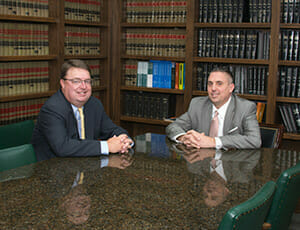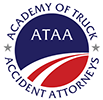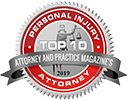Drowsy Driving Crashes in Austin, Texas
On the morning of Feb. 13, 2017, a furniture truck driver fell asleep while driving on highway 45, lost control of his truck, and crashed into a sign support, which then fell on top of the truck. The driver and the two other men in the truck were injured in the crash and transported to a local hospital for treatment of their injuries.
Driving while drowsy raises the risk for a serious or deadly crash, yet some drivers do it everyday. And drivers don’t have to actually fall asleep to be a danger on the roads. Drowsiness makes drivers less alert and interferes with their judgment and reaction time, just as alcohol does. The National Sleep Foundation says that driving after being awake 18 hours is like driving with a blood alcohol level of .05 percent, close to the threshold of legal intoxication, .08 percent.
Drivers may not be aware when they’ve had too little sleep, but when they do experience obvious signs of drowsiness – like excessive yawning and difficulty keeping their eyes open – the only responsible thing to do is to pull over in a safe location and either get some rest or make other transportation arrangements.
Characteristics of Drowsy Drivers
Long-haul truckers are at high risk of drowsy driving. Their erratic schedules may interfere with their sleep quality – or they may not get enough sleep. When driving alone, at night, on an uninterrupted stretch of highway, it’s easy for a truck driver’s drowsy brain to go into “auto-pilot” – meaning, the driver is not fully aware of what’s happening on the road. When extremely tired, a driver may lose consciousness, which all but guarantees a crash. In such unfortunate situations, consulting an experienced Austin truck accident lawyer is crucial to navigate the legal complexities that may arise.
It’s not just truck drivers, though, who are at risk of drowsy driving. According to the Governors Highway Safety Administration, others with a high risk of driving while tired are:
- Teens and young adults – Young people need a lot of sleep – ideally, eight to 10 hours – but few of them actually get that much sleep. Because they’re relatively inexperienced drivers, young people may be less prepared to deal with the effects of drowsiness. For example, a young driver who momentarily nods off before noticing his car leaving the roadway may overcorrect and lose all control of the car. Of the drowsy driving crashes that occur each year, about half of them involve drivers age 25 or younger.
- Shift and night workers – The human body is naturally inclined to sleep during darkness and wake when the sun rises. So when people work third shift, or overnight, they’re constantly battling their body’s own natural rhythms. Those rhythms make take over unexpectedly – like when a shift worker is driving home from work in the morning.
- Police officers and emergency responders – Police officers, firefighters, and paramedics often work long, irregular hours. Some police officers also take on part-time jobs as security officers, which means they have less time to rest. The GHSA notes that one study of 5,000 police officers found 46 percent had fallen asleep while driving.
- Health care workers – First-year medical residents work up to 16 hours at a time and up to 80 hours a week. They sleep when they can, but it’s difficult to establish any kind of regular sleep schedule. One study found that those who worked a monthly overnight shift had an overall increased crash risk that was even higher when driving home after a shift.
- People with sleep disorders – Disorders that interfere with sleep – such as sleep apnea and restless legs syndrome – leave people feeling tired in the morning. Snoring is a sign of sleep apnea, but not all people with sleep apnea snore, so they may be unaware they have a sleep disorder that affects their alertness during the day.
Drivers who haven’t had enough sleep are more susceptible to the effects of alcohol and medications that cause drowsiness. People who regularly skimp on sleep have what’s known as a “sleep debt,” meaning they suffer compounded effects from night after night of inadequate sleep. In fact, a AAA study found a direct correlation between hours of sleep and crash risk:
- 5 to 6 hours of sleep – twice as likely to crash
- 4 to 5 hours of sleep – four times as likely to crash
- Less than 4 hours of sleep – 12 times as likely to crash.
Help for Crash Victims
Drowsy driving is dangerous, and many drivers who recognize they’re too tired to drive continue driving anyway. Maybe they think if they’ve done it before and made it home safely, they can do it again. But that’s a terrible risk to take.
If you’ve suffered an injury in a car crash, you need an experienced Austin personal injury attorney on your side. Contact the Evans/Reilley Law Firm using our online form or by calling 1-855-414-1012 to find out if you have a case.

 Serving Clients Throughout Texas
Serving Clients Throughout Texas


 Chip Evans is a partner at Evans & Herlihy. Chip brings to the firm more than 20 years of experience as a trial lawyer representing Plaintiffs. It is the desire to help individuals, not corporations, that attracts Chip to this side of the docket. [
Chip Evans is a partner at Evans & Herlihy. Chip brings to the firm more than 20 years of experience as a trial lawyer representing Plaintiffs. It is the desire to help individuals, not corporations, that attracts Chip to this side of the docket. [ 







